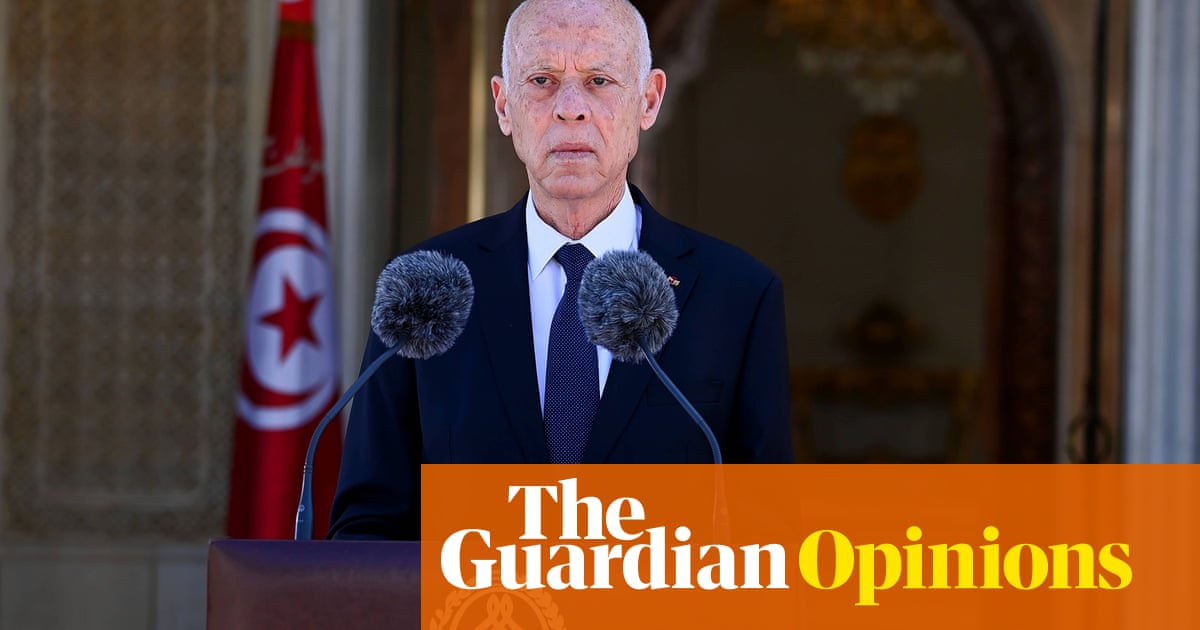Tunisia wasn’t just thebirthplaceof the Arab spring. In 2021, a decade after the movement swept across the region, it remained a flickering yet precious beacon of democracy when other nations had swiftly fallen into chaos or authoritarianism. Then President Kais Saied staged a self-coup andreversedmost of his country’s progress, dismantling institutions and snatching away his compatriots’ hard-won civil liberties.
Following hisre-election last year– in a contest from which all significant oppositionhad been removed, and on a historically low turnout – he has redoubled his efforts. Civil society, business, the judiciary and the media as well as political opponents have all felt the pain, but it hasn’t stopped with them. Last year, officials from the Tunisian Swimming Federation were arrested forplotting against state securityover their failure to display the national flag at a competition.
Human Rights Watch warned in anew reportlast week that arbitrary detention has become a cornerstone of the government’s repression, and that multiple detainees face the death penalty in cases relating to their public statements or political activities. It was published as a court sentencedopposition politicians, former officials and other prominent Tunisian figuresto up to 66 years in jail following a mass trial. The trumped-up conspiracy case (in which some defendants are still to be sentenced) includes charges such as plotting against the state and membership of a terrorist group. One of the many tried in absentia was theFrench intellectual Bernard-Henri Lévy, who was reportedly handed 33 years.
The verdicts were never in much doubt. Mr Saied said in 2023 that the accused politicians were “traitors and terrorists” and that judges who acquitted them would be accomplices. The defendants included key figures from Ennahda, the largest opposition party; its co-founder, 83-year-old Rached Ghannouchi, wassentenced to 22 years in prisonin a separate case in February. As if to ram home the message of the conspiracy case, the leading defence lawyer Ahmed Souabwas arrestedafter calling proceedings a farce.
Western democratic partners of Tunisia have been strikingly and shamefully muted as Mr Saied’s campaign of repression has unfolded. When ethnic violence and evictions followed hisxenophobic and cynical attackson undocumentedmigrantsfrom sub-Saharan Africa two years ago – blaming them for the country’s economic woes – relations remained cosy.
For the European Union and the UK, the president’swillingness to control migrant flowshas mattered far more than his crushing of domestic democratic impulses. Earlier this month, the European Commission proposedincluding Tunisia on a new EU list of safe countries of origin– allowing member states to speed up processing of asylum claims from those countries on the basis that they are unlikely to be successful. The court verdicts last week are just another reminder of why they shouldn’t.
Mr Saied’s paranoia underscores the truth that he is not invincible. The failure to match material progress to democratic advances fuelled his rise, but the country’s economic travails have deepened under him. There is reportedly growing discomfort about his rule in military and governmental circles. Nonetheless, there is immense personal risk in speaking out. That makes it all the more admirable that some Tunisians are still willing to do so. They should not be left to defend what little remains of their democratic dream alone.
Do you have an opinion on the issues raised in this article? If you would like to submit a response of up to 300 words by email to be considered for publication in ourletterssection, pleaseclick here.
